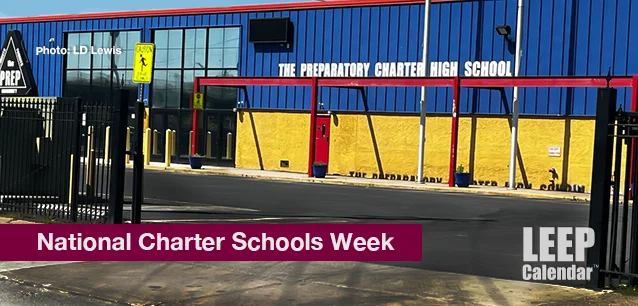 AD
AD
Today is: January 07
Scroll to explore events active on this date.
Additional Events on LEEP
LEEP INK FEATURES

August? Absolutely!
In August, we live through the Dog Days of Summer. It's hot and often humid, and those who can leave for better climates do. Down south, winter is in full force. August is also known as "the ...

In The Heat of July: July 2025 Events
Is it hot enough (or cold enough if you're below the equator) for you yet? There is actually a day for that! Like every month, I pick a diverse collection of events you may or may not know about. This ...

May Blooms: Events in May 2025
Along with October, May is one of the most densely packed months of the year. It's before the summer humidity and the last whole month of the school year. The weather is warming in t...
About National Charter Schools Week
United States
Ends: May 05, 2023
DESCRIPTION:
National Charter Schools Week brings students, parents, teachers, and communities together to celebrate charter schools.
Charter schools appeared in the United States in 1991 due to the state of Minnesota passing legislation to allow tax-payer-funded schools that could operate foreign of various regulations in exchange for increased accountability and elevated student achievement.
The idea behind charter schools originates in the privatization movement, which believes government-run institutions are inefficient. Ideally, charter schools give educators more flexibility and autonomy to innovate and experiment with different teaching methods. Independent organizations, including nonprofit and for-profit companies, are paid by tax dollars to administer charter schools.
Charter schools have been controversial since their inception, with critics arguing that they drain resources from government-run public schools and exacerbate inequalities by cherry-picking students and families. Supporters point to their success in improving student achievement and offering innovative approaches to education. Both sides have good arguments, successes, and failures.
The US government states that 74-94% of students who started ninth grade graduated from high school in 2019-2020. Arizona had the lowest percentage; Iowa, Kentucky, and Texas had the highest, with over 21 states averaging over 90%, regardless of public, private, or charter. In poorer districts like Philadelphia, charter schools graduate more students within four years than public schools. In wealthy suburbs, there is little difference. Charter schools can accept or reject students. Government-run public schools cannot.
Overall, no definitive evidence points to charter schools as a better quality system than government-run public schools. Location, tax base, student body, local economic conditions, teaching staff, and other factors impact both types of schools and lead to good and bad results within each system. For parents navigating education for their children, judge quality on a school-by-school basis, not on its purpose (public education, private or charter for-profit/nonprofit). Good and bad examples can be found in each system.
This event began in 2010.
VIDEOS
Currently, this event does not have supporting videos.
SUPPORTING DOCUMENTS
Currently, this event does not have supporting documents.
ADDITIONAL IMAGES
Currently, this event does not have supporting images.
Where would you like to go now?
 AD
AD


/footer-logo.svg)
